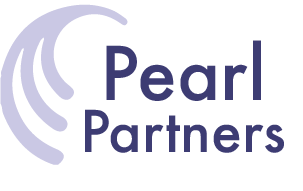In my last post I talked about the different dimensions of innovation, and that there is some low hanging fruit in the healthcare system that could be realized by applying behavioral knowledge to create new value propositions. Currently there is a lot of talk about Apple Health and its potential to revolutionize healthcare. Whether or not it will be revolutionary can be debated, but Ill describe how I think that Health (or other software platforms like it) can be used to create new value propositions based on behavioral knowledge.
The Current State
Currently, poor self-care of chronic disease is one of the biggest drivers of costs in the healthcare system. Its also one of the most difficult to tackle since its largely dependent upon patient behavior. Over the years Ive done many deep dives to decipher the deep motivations that drive patient behavior, and align offerings such that they satisfy these motivations. In thinking about chronic disease management, I would put these drivers into two general categories: How much knowledge a patient has about their disease, and how actively engaged they are in managing it, as shown in the graphic above:
The high costs and poor health outcomes we currently see would lead us to believe that most people have no knowledge of that to do and take little action to care for their health, as seen in the lower left quadrant of the graphic. Ideally, we would like to move patients with chronic diseases to the upper right quadrant; with a high degree of knowledge of their disease, and actively engaged in caring for themselves.
The Behavioral Problem
On the surface, it would then make sense to solve these issues by providing more data, and education to patients and as such, we have seen the proliferation of wearable health and wellness devices that attempt to do just that. However, if we look beneath the surface the story becomes a little more complicated, and we can start to see how providing more data can exacerbate the problem it is intended to solve. We see this manifested in the two behavioral types that Ill call the Misinformed and the Overwhelmed.
The Misinformed
The Misinformed group is represented in the graphic as people who are actively engaged and motivated, but they have poor or wrong information and dont always take the right actions. They are motivated to take action, and since they are not medical professionals, they end up confused with the abundance of information they can find on the internet, through friends, and other sources. There are few resources available to help them to sort through what is relevant for them vs others. Ideally this type of support would come from a medical professional, but it is impractical for physicians to spend this kind of time. Classes offered in a clinic setting can help, but these people are motivated to work toward individualizing what works for them. As such, they need a way to personalize day-to-day management with oversight and coaching from a healthcare professional. These people are taking actions but they are often taking the wrong actions, and the end result is the same as, or sometimes worse than, taking no action.
The Overwhelmed
The Overwhelmed group is represented in the graphic as people who have good knowledge of their disease, but they have so much data they become overwhelmed and avoid it altogether. This can take the form of denial, or minimizing the number of decisions they make to the point that the oversimplification results in less effective actions. These people may even be motivated enough to try new devices, but after receiving just too much data they give up because they cant spend their life trying to figure out what it all means. As with the Misinformed, they are often not medical professionals, and they need simple solutions that help them to cut through the clutter to quickly figure out what to do. With too much information they end up taking shortcuts to fit into their daily routine often taking insufficient actions, and again the end result is often the same as taking no action or the wrong action.
The Opportunity
Its with these groups that I believe the low hanging fruit exists, and there are many who would argue that affecting this type of behavior change is far from low hanging fruit. I agree that it is difficult, but it presents an opportunity to create solutions that are more meaningful than creating more devices to collect more data that confuses or overwhelms people. This is where I think platforms such as Health Kit, Google Fit, and others, can add the greatest value. As Ive seen it described, the platform will collect data in a standardized format. If it lives up to this promise, a platform like this will enable three things:
- It will provide a common platform to collect data from disparate sources.
- It will enable those who previously could not access this data to build new tools and offerings to make sense of it. This is especially important in chronic disease management, where the integration of multiple types of information is necessary to get a full picture of what is going on day-to-day.
- Finally, it will enable patients and their healthcare providers with common communication platforms to aid in teaching and customizing of treatment decisions, making nurses and technicians more effective and easing the burden on time stretched physicians. These new tools can serve as vehicles to foster more positive, effective engagement. This is probably the most important benefit to enable a more efficient, effective healthcare environment.
Platforms such as Apple Health will not likely revolutionize healthcare single-handedly. However, they can provide powerful access to people with the expertise to make sense of all the data available, so it can be effectively used by those who need it. That will be the real revolution.



